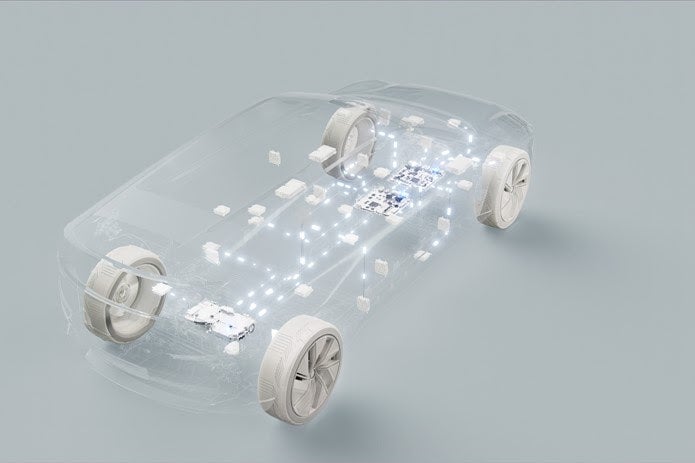
Geely’s Volvo Cars said today it would take software development in-house “as a car’s appeal increasingly becomes more defined by software-driven functions and features, rather than traditional automotive attributes”.
The next generation of pure electric models, including the company’s first SUV on a completely new electric-only technology base, will run on the automaker’s own operating system (OS), called VolvoCars.OS, for faster and more flexible development coupled with more frequent over-the-air updates.

Discover B2B Marketing That Performs
Combine business intelligence and editorial excellence to reach engaged professionals across 36 leading media platforms.
VolvoCars.OS will act as an umbrella system for electric models. It incorporates the company’s various operating systems across the car and the cloud, creating one coherent software OS environment. The underlying operating systems include Android Automotive OS, QNX, AUTOSAR and Linux.
Through a variety of application programming interfaces (APIs), including the previously announced Extended Vehicle API, the VolvoCars.OS gives developers access to in-car features such as vehicle sensor data, user interfaces and cloud-based features such as fleet data, subject to customer consent. This allows developers to create new services and applications.
“By developing software in-house we can boost development speeds and improve [cars] faster than we can today,” said CTO Henrik Green. “Just like on a smartphone or computer, new software and features can be rolled out swiftly through over-the-air updates.”
Volvo is also centralising computing inside its fully electric cars into a core system, removing a lot of complexity. Rather than relying on multiple electronic control units around the car that control individual features and systems, an increasing amount of in-house-developed software will run in a powerful core computing system in the car.
The core computing system, which will first be introduced on a new model in 2022, is made up of three main computers. These support each other in operating vision processing and artificial intelligence, general computing and infotainment respectively.
The shift to centralised computing also allows engineers to gradually separate hardware from software. This means the company can introduce more frequent hardware cycles, so that new models can be equipped with the latest available hardware.
Collaborating technology firms include NVIDIA, with whom the company is working with on the core systems, and Google, the co-development partner for infotainment systems.
“We have a deliberate strategy of partnering with true technology leaders where it makes sense,” said Green. “Google is a true leader in user experience and services, from Google Maps to Google Assistant, while NVIDIA gives us access to some of the fastest and best computing available. This approach of selected strategic partnerships is much more effective than trying to do everything on our own.”
Successful collaboration with technology leaders is also a driving factor behind the automaker’s decision to open up its new OS to third-party innovation through open APIs.






